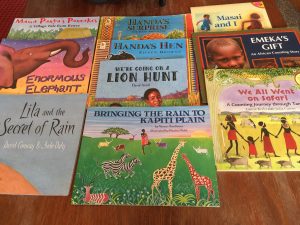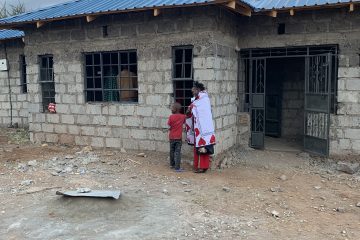
Bonface explained that there is a new reading initiative. Every class has reading from 1.30pm – 2pm each day to try to improve the standard of reading. I have a look to see what is happening. Some classes are watching stories on chrome books and some are silent reading. We can do better.
One of the issues in this school and in many schools in Africa, is that children learn to read without ever seeing a book. Lack of resources often means that reading is a blackboard exercise. Compare this to the experience of pupils back home who will be exposed to books on a daily basis from nursery and for most much earlier than that. The majority of pupils who attend Osiligi will never have seen a book, never mind explored one, prior to coming to school. I had brought a selection of African books as a gift to the school but it was not going to be enough!

Reading is such a crucial skill. What happens here is that pupils learn to become effective decoders but their comprehension of the text lags far behind. This was not on my jobs list before I came – but it is now!
I start with a staff training session where we discuss the skills of learning to read. Most of the teachers believe it is letter recognition and knowledge of phonics. Actually, the first skill of reading is listening. Children must be exposed to stories and books. Then they have to engage with and talk about them. Then they need to understand how text works. This means that they realise that a story has a beginning, middle and end, pages are turned in order, words have meaning etc. All of this must be firmly in place before the formal teaching begins. If it is not, then the gap between decoding (learning to say the words) and understanding what you are reading begins to widen.
There is a great deal of evidence to support the idea that students who cannot read well by the time they are eight or nine years old—when the emphasis in school becomes reading to learn and not learning to read—often struggle to catch up both academically and socially with their peers. There is also evidence that pupils who struggle to read will struggle to learn.

It is a revelation to the teachers. And why wouldn’t it be? They have never been trained to think about reading in this way.
It is a daunting endeavour to turn around whole school reading approaches and attainment. But then again, I’m not here for a holiday!



0 Comments